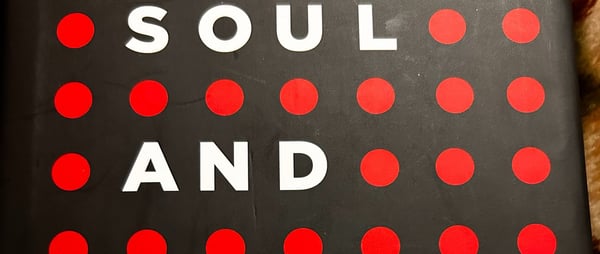Soul And Sword: The History Of Political Hinduism
Book Review
It is extremely difficult to appreciate why our Hindu friends fail to understand…..this misconception of one Indian nation has gone far beyond the limits and is the cause of more of our troubles and will lead India to destruction if we fail to revise our notions in time.
The words written above were produced at the Lahore session of the Muslim league in 1940, by none other than Jinnah to justify the demand for Pakistan.
Although it’s not the complete text, certain omissions by this author of the original have been deliberate.
The reason for doing so is to start a thought exercise
The above text is taken in the context of the book under review, ‘Soul and Sword’: The history of Political Hinduism.
An attempt as claimed by the author to trace the origin of ‘Hindutva’ aka Political Hinduism in its journey to the present form that we see today.
what would come to an average person's mind who was born in the post liberalization era and if not political savvy most probably ignores the current affairs deliberately or ignorantly and has a sense of deep rooted globalism and its resultant wisdom.
On the other hand what would a politically active person, also a product of the same era but also a student of history, interpret the same lines?
Now whatever may be the individual's journey on the timestamp, one thing is certain and that is the convergence of path at one point where however uncomfortable or unnecessary the clash may seem it’s a bridge that has to be crossed.
The point of ‘Discovery’ as in Discovery of India by Nehru or ‘Hindutva’ as in defined by Savarkar or the fact that even after so many years the fundamental questions remain the same. And the genuineness to answer these questions lies not in a ‘middle path’ as defined by Gandhi or in an Direct action day as practiced by Jinnah but something else and that something else is what we are always shy of discussing in the open.
The book offers a cursory look at the events through India’s political history and tries to establish a common link that can connect to the central theme of the idea that is the tracking of political Hinduism journey.
Although it lacks certain depths at many places, but for a seasoned reader and a student of history who has been a close follower/observer of events around him it can serve as a reference point to connect one’s own ideas.
Which brings us to our initial thought exercise and what exactly does it have to do with the review of a book per se.
The main idea or one can say the out of book idea is to develop a mental model to appreciate the power of asking the right questions. Because when the right questions are asked rightly and at the right time it saves a lot of lives.
And that is one thing that could be the takeaway from this book.

